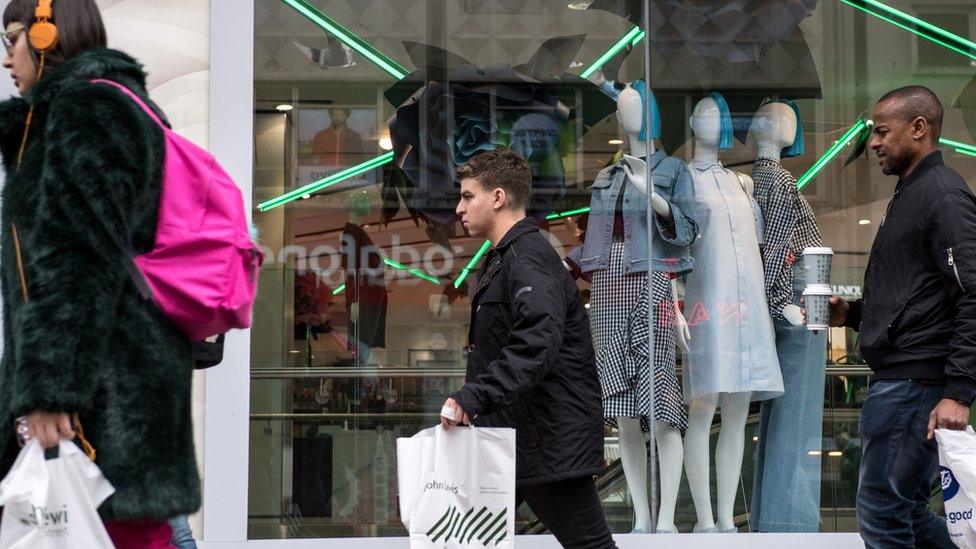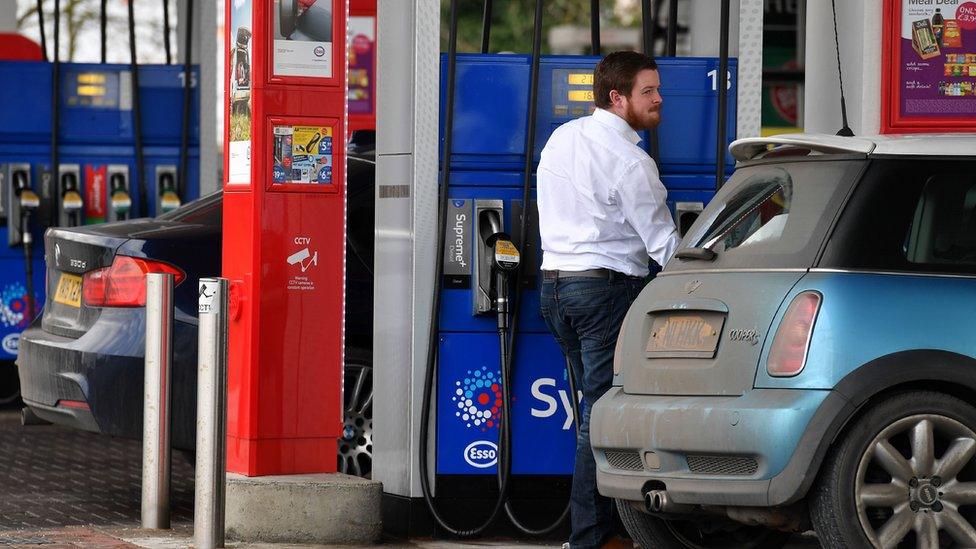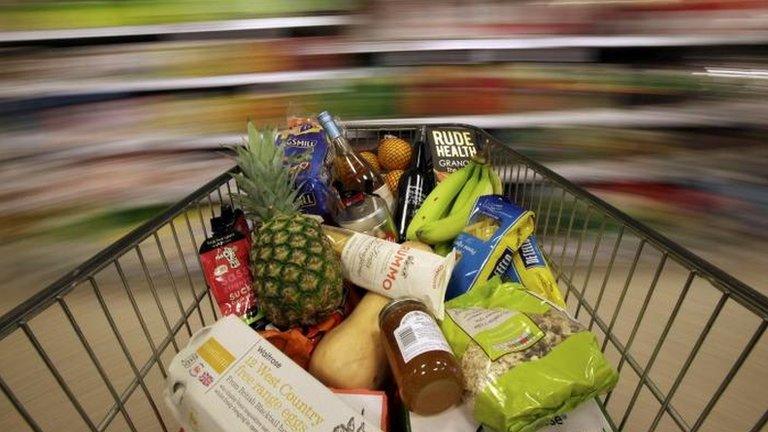Higher fuel prices take toll on retail sales
- Published

UK retail sales posted a 1.4% rise in February from the previous month, but there are signs that higher fuel prices have begun to hit shoppers' pockets.
In the three months to February, sales volumes fell by 1.4%, a sharper slide than the 0.5% decline for the three months to January.
That was the biggest three-month fall recorded by the Office for National Statistics (ONS) since March 2010.
Fuel prices in February were 18.7% higher than a year earlier.
"February's retail sales figures show fairly strong growth, though the underlying three-month picture shows falling sales as February's figures follow two consecutive months of decline in December and January," said ONS statistician Kate Davies.
"The underlying trend suggests that rising petrol prices in particular have had a negative effect on the overall quantity of goods bought over the last three months."
Petrol cost an average of 120p a litre in February, with diesel 3p more, according to ONS figures.

However, the 1.4% rise in retail sales in February was higher than the 0.4% increase expected by economists.
News of the month-on-month increase sent the pound higher above $1.25.
Paul Hollingsworth at Capital Economics said the figures would give some reassurance that higher inflation had not brought growth in consumer spending to a halt.
Inflation as measured by the Consumer Prices Index jumped to 2.3% in February - up from 1.8% in January, the ONS said on Tuesday.
Next 'cautious'
However, Howard Archer at IHS Markit said consumers were becoming more cautious as higher inflation squeezed their purchasing power.
"The economy's persistent resilience since last June's Brexit vote has been largely built on consumers keeping on spending," he said.
"With consumers now seemingly moderating their spending, the long-anticipated slowdown in the economy looks set to materialise unless other sectors can make significantly increased contributions."
Fashion retailer Next said on Thursday it was "extremely cautious" about trading for the coming year as it reported lower annual profits.
Martin Beck, senior economic adviser to the EY ITEM Club, said annual shop price inflation increased from 1.9% in January to 2.8% in February - a 60-month high.
"How the year pans out will depend heavily upon consumers' willingness to draw on savings or take on more debt," he said. "Last year's retail boom looks set to become an increasingly distant memory."
- Published21 March 2017

- Published3 February 2017
